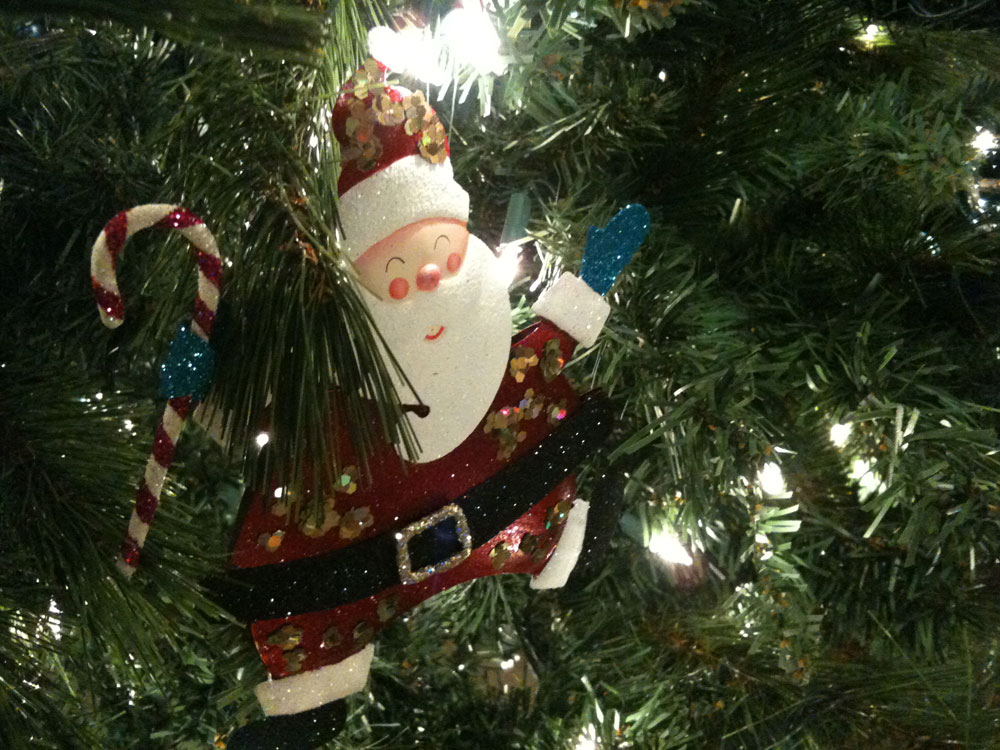Teaching and Learning and Caring Blog
EL PASO – Can any holiday measure up to our expectations of it? As in any city, our appreciation of it probably depends on which streets we travel, what we do there, and with whom. Holidays come in all sorts of packages, some so large we cannot avoid, like the proverbial elephant in the room, and some so small we barely notice they have come and gone.

The winter holidays have been packed with meaning, weighted down with lots of luggage. (Lourdes Cueva Chacón/Borderzine.com)
Holidays emerge from some collective sense about the specialness of an event and a belief that it ought to be remembered, honored. These events emerge primarily out of religious traditions (Easter, Passover, Ramadan), nationalism (4th of July, President’s Day), and the recognition of relationships (Valentine’s Day, Mother’s Day). Among certain population groups, celestial events are also celebrated, such as the Chinese Moon Festival. Many holidays do double duty. So, instead of celebrating every President, we celebrate all of them on the same day, and Mondays have become a popular day for moving our federally recognized holidays to, thereby giving some workers a three-day weekend. The religious festival of Ramadan uses the Islamic lunar calendar to signify its beginning and end.
The winter holidays have been packed with meaning, weighted down with lots of luggage. There is Christmas, religious and secular, there is Hanukkah, Eid al-Adha, Kwanza, winter solstice, and the end and beginning of different new years. Maybe we do this because we are a frugal country with a Puritan past or a multicultural country. Maybe we learned something from the Indians about combining celebrations: holiness required by a Catholic church and reverence for corn, to declare a feast day that accomplished both demands.
The danger of piling on is the confusion it can create along with the increased likelihood of someone getting hurt. Combining holidays and a variety of holiday traditions needs to be carefully balanced and orchestrated, like Pueblo Feast Days. In this country and at this time of year, tensions derive from a clash among religious traditions as well as between religious and secular traditions. So, to the intersection of State Street and Church, we add the bumper-to-bumper traffic of Main Street to the mix, and that means business. It means money, and it plays with our emotions as much as with our credit cards.
Additional tensions emerge from memory and expectations. Aside from any inherent meaning, the calendar acts as a trigger that wounds us with bullets of the memory of loss or disillusionment. It can also raise our expectations by creating an idyllic past that we struggle to recreate, but never seem to succeed. These feelings may be compared to the dimly lit back alleys of the holidays, places where we are afraid of what might happen. This is where the ghosts of Christmas past and the ghosts of the future sit against warehouse walls, drinking from paper bags, waiting, leering, taunting, or worse.
People who work in retail sales, on Main Street, watch those who have been wounded, who have walked through the alleyways, who are maniacally trying to create an ideal space, an ideal family, an ideal holiday. They do their best to help these impatient customers now in their aisles, at their counter, even as they try to meet their own inflated sales goals, to buy their own perfect gifts, and drive to and from work in that same bumper to bumper traffic. They become perhaps even more disillusioned about the holidays than the man who has lost his religious faith. Customers scream and say rude things that a god never would.
So. Do we wait out the calendar? Drink away the old year and toast the new one? Make resolutions? My son received a Snoopy Christmas card with an inside line that read: “Sometimes, the very best gifts are the ones we already have.” That’s a start. We could celebrate that.


